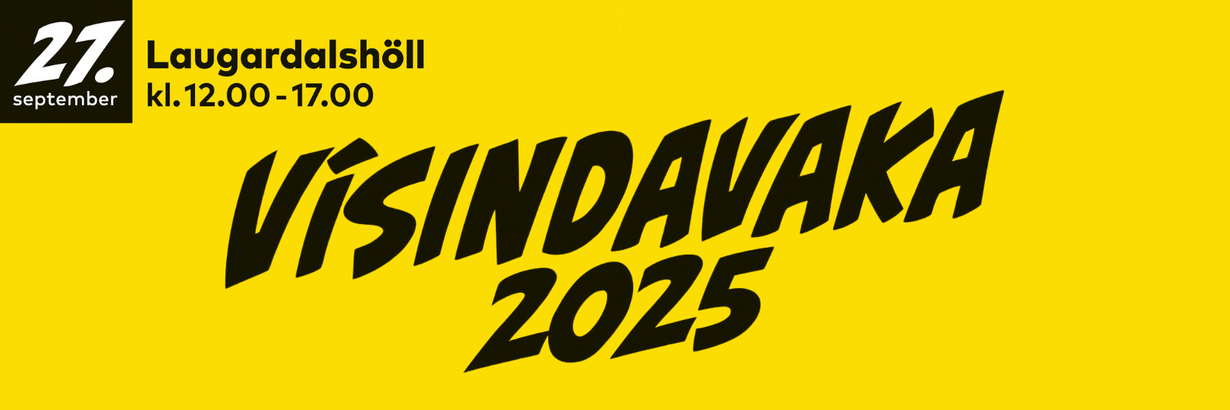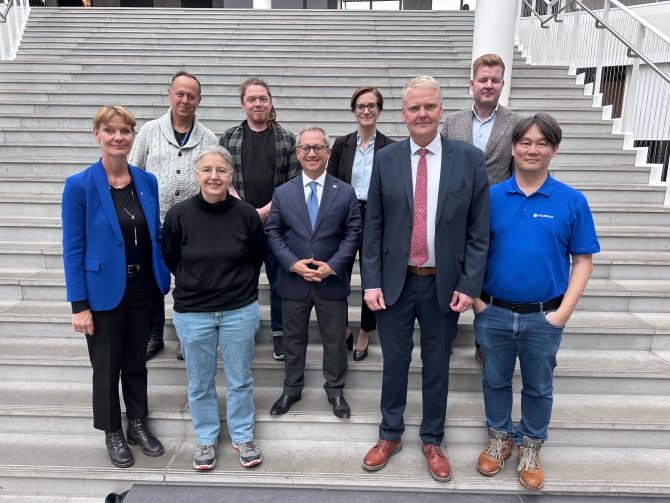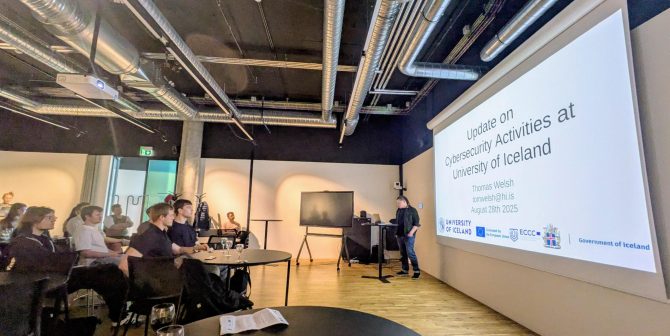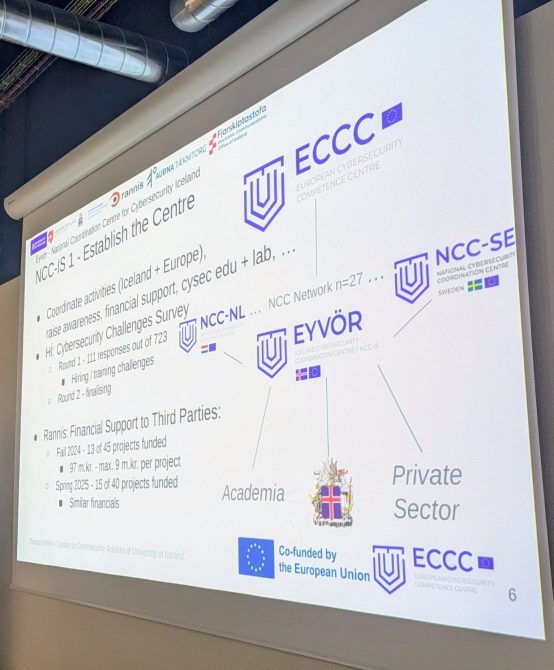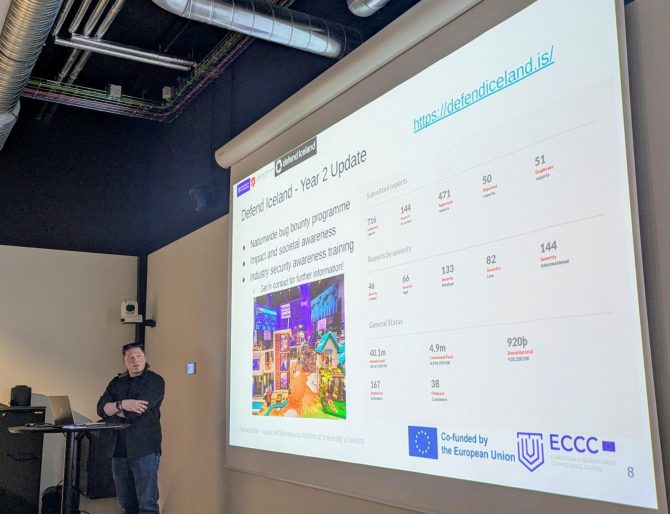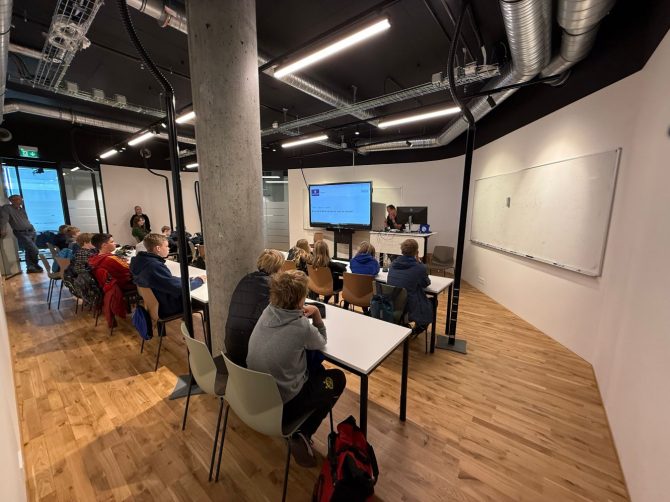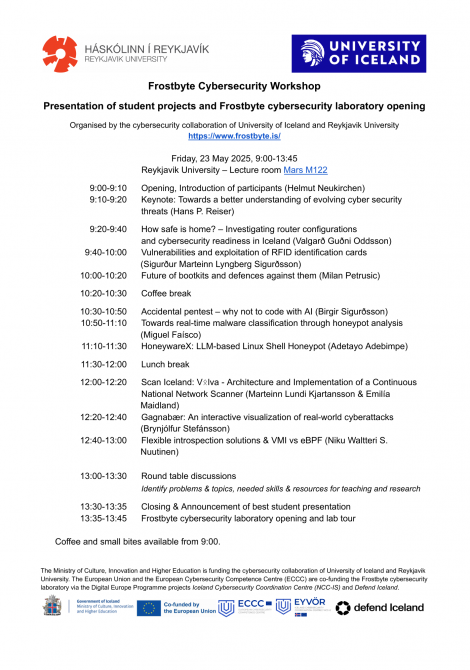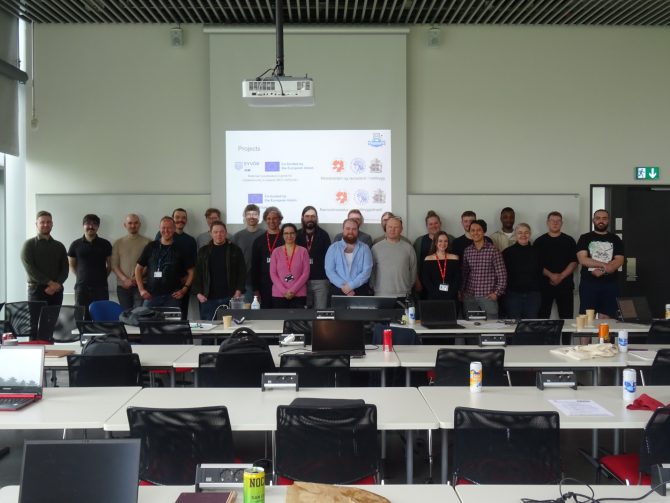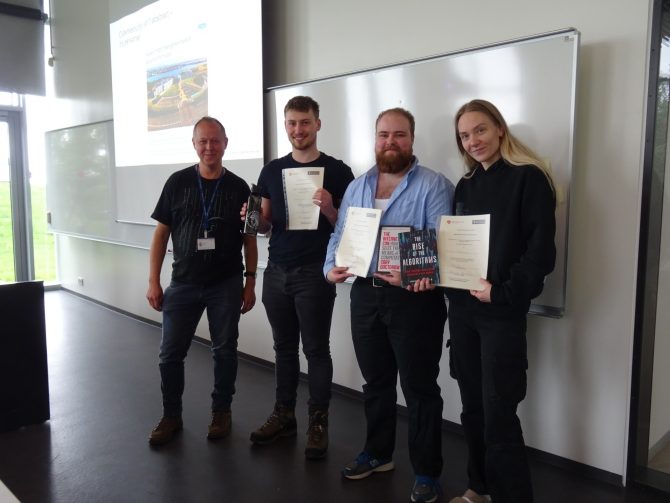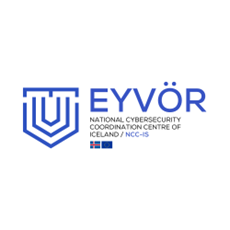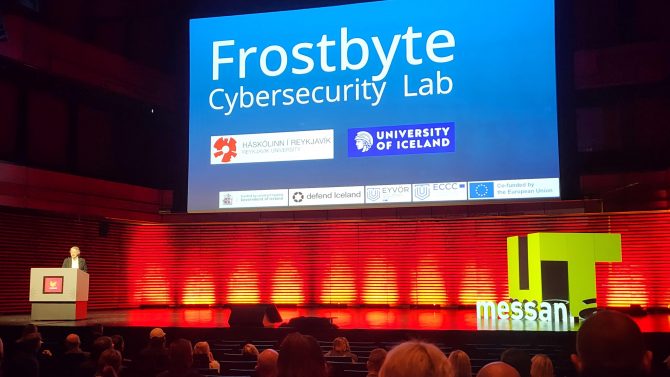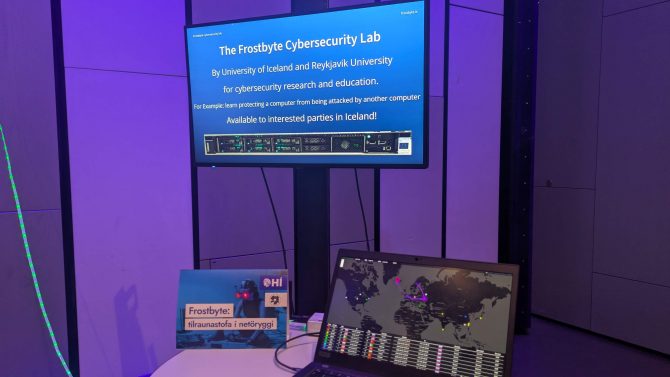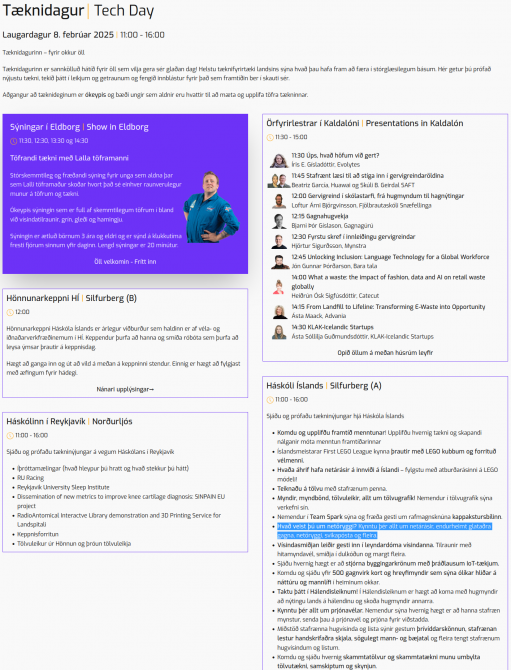European Researchers' Night 2025 / Vísindavaka 2025
On Saturday, 27. September 2024, 12:00-17:00, there was Vísindavaka 2025, the Icelandic family-friendly-during-daytime edition of European Researchers' Night 2026 at Laugardalshöll in Reykjavik.
The Computer Science department of University of Iceland had a couple of booths there, showcasing our activities in a way accessible for the general public.
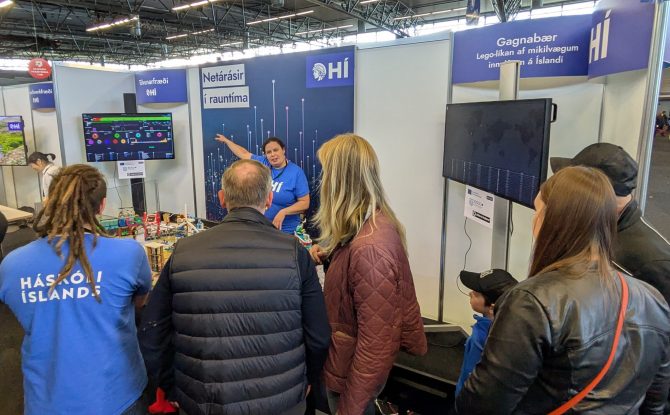

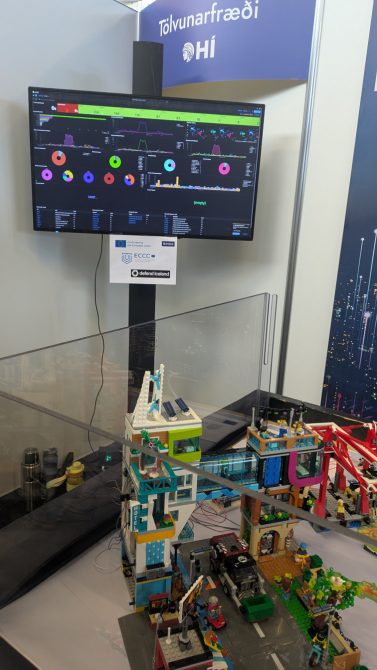
Gagnabær ("Datatown") digital twin that visualises cyber attacks in Iceland. A LEGO model of Iceland representing critical infrastructure that is subject to attacks. Each time, a service on our Internet-connected computer is attacked via the Internet from anywhere in the world, a light goes off. So when all Iceland turns dark in our Lego model, then you know that all of our services are currently being attacked at the same time. We use just a dummy sample server, but in fact, it could be your computer or a power plant that is attacked. This relates to ICEDEF – Defend Iceland and Eyvör – the National Cybersecurity Coordination Centre of Iceland (NCC-IS).
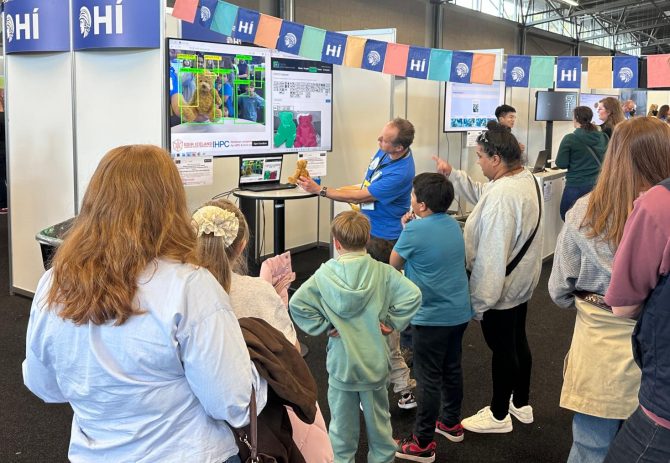
AI trained on a supercomputer, but running locally in the browser of your smartphone.

The European Digital Innovation Hub Iceland (EDIH-IS) and the EuroCC co-funded National Competence Center (NCC) Icelandic High-Performance Computing (IHPC) provide give a glimpse into artificial intelligence by using a neural network that runs purely in your browser without any connection to a super computer. Simply use the camera of your smartphone (or laptop) to detect objects in real-time -- just open the following web page and allow your browser to use the camera: https://uice.is The used approach is a Single Shot Detector (SSD) (the percentage shows how sure the neural network is about the classification) using the Mobilenet neural network architecture. The dataset used for training is COCO (Common Objects in Context), i.e. only objects of the labeled object classes contained in COCO will get detected. The Javascript code that is running in your browser uses Tensorflow Lite and its Object Detection API and model zoo.
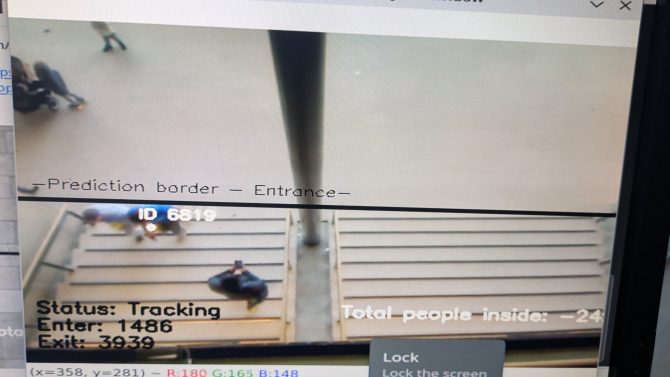
Another application of object detection (combined with object tracking): the organisers of the European Researcher's Night asked me to count the number of visitors by having a camera at the entrance that counts people entering and exiting. This was not showcased at a booth, but ran GDPR compliant (counting was done in real time and no video was recorded) in the background. As the camera was low resolution, the software had however some issues and was more reliable in counting people exiting than entering. Anecdotal evidence suggest, that children were not counted as these were simply too few pixels to be detected. It remains to be found out whether a higher resolution camera would improve the situation.
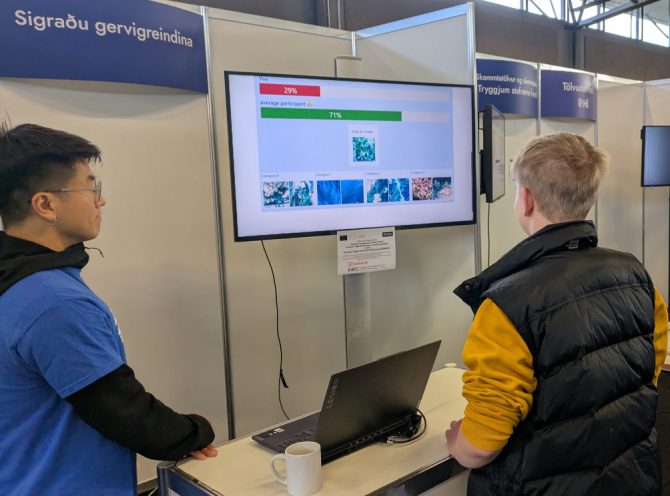
Beat the AI! A remote sensing demonstration that relates also to work done in EDIH-IS and IHPC where neural networks are used to classify land cover from satellite images, (Photo from Vísindavaka 2022)
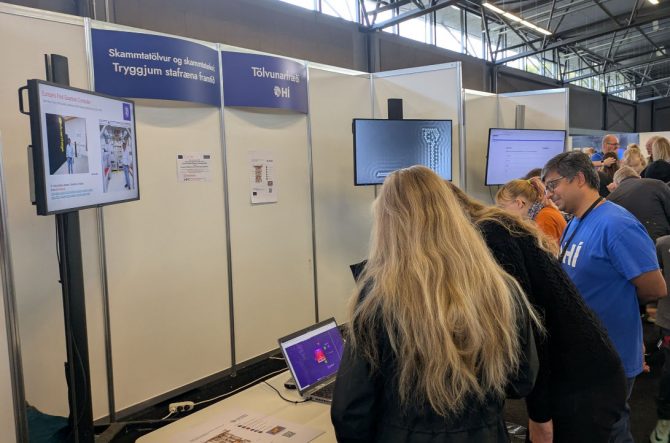
In addition, we will have a booth on quantum computing -- this relates to our quantum encryption education activities as part of ICEDEF – Defend Iceland and Eyvör – the National Cybersecurity Coordination Centre of Iceland (NCC-IS), but also to EDIH-IS and IHPC as quantum computing might be the future of supercomputing.
Our booths at the previous European Researchers' Nights:
- European Researchers' Night 2024 / Vísindavaka 2024
- European Researchers' Night 2023 / Vísindavaka 2023
- European Researchers' Night 2022 / Vísindavaka 2022
- No 2020 nor 2021 European Researchers' Nights due to COVID pandemic
- European Researchers' Night 2019 / Vísindavaka 2019
Parts of this event are in the context of our cybersecurity activities and the ECCC/EU co-funded projects ICEDEF – Defend Iceland and Eyvör – the National Cybersecurity Coordination Centre of Iceland (NCC-IS).
![]()
![]()
